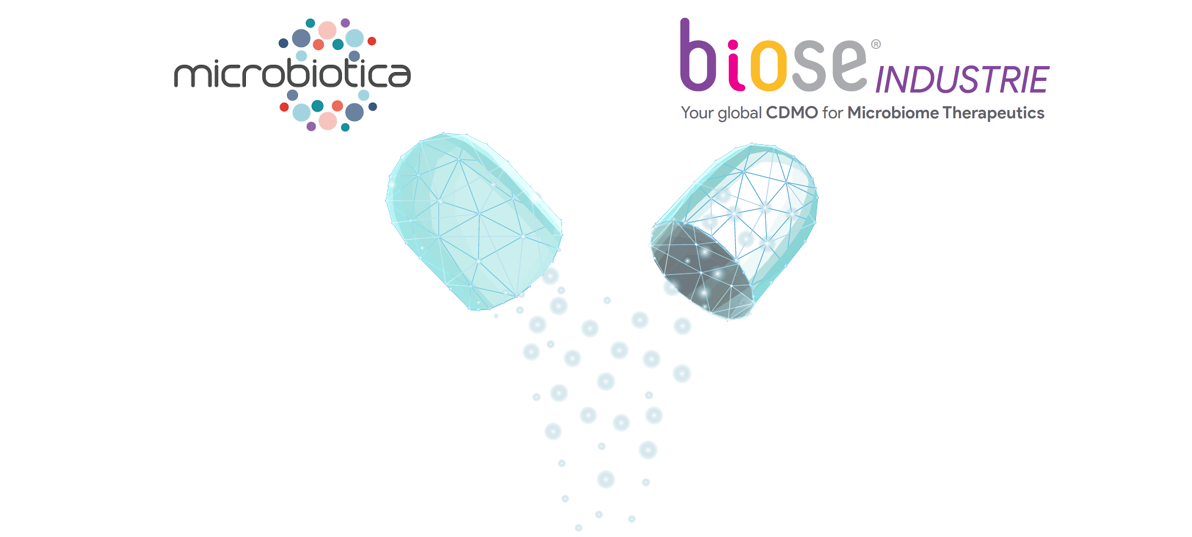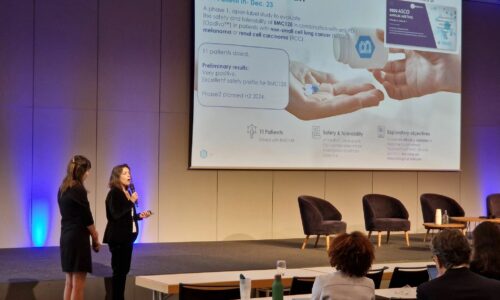Introduction
Working to scale a hard-to-culture microbial strain can be a challenging feat. Selecting the right culturing conditions is iterative, unpredictable, and time-consuming. It requires extensive experience, the right equipment, and a finely tuned approach. For some, without the right know-how it might even seem impossible.
Now imagine the challenge of having to scale a product consisting of over eight separate hard-to-culture strains…which is exactly what Microbiotica had to do with it’s two live biotherapeutic programs: MB097 and MB310.
Biose had the privilege of working with Microbiotica to overcome this challenge and get these programs to clinical scale for phase 1b clinical trials.
Microbiotica precisely links bacterial signatures to clinical outcomes
Microbiotica is a spin-out from the world-renowned Wellcome Sanger Institute, drawing on 10 years of microbiome experience. The compositions of their defined live biotherapeutics are selected from bacterial signatures found in successful clinical outcomes in defined patient groups.
MB097 boosts immune checkpoint inhibitor response and MB310 modifies ulcerative colitis
- MB097 is a nine strain LBP, made up of strains identified in clinical responders to ICI in melanoma patient datasets. In mice tumour models combined anti-PD1 and MB097 therapy shows significantly higher survival rates compared to just anti-PD1 therapy alone.
- MB310 is an eight strain LBP composed of bacteria identified from patients who responded well to FMT in an ulcerative colitis trial. MB310 might work by stimulating intestinal barrier repair to prevent a harmful proinflammatory response in the gut of UC patients.
The journey to scale was resource intensive and difficult
When Microbiotica approached Biose Industrie, they needed to scale-up these two candidates ready for their respective phase 1b clinical trials. The collaboration was challenging, but ultimately successful.
During transfer of materials from client to Biose it was identified that the process needed to be adapted for scale-up and GMP.
Careful tweaking and iterations led to a hard-to-scale microbe achieving exponential growth
One key step in this was figuring out how to culture Microbiotica’s newly discovered, MI10 strain. This hard-to-culture, anaerobe showed very little growth under initial culturing. Microbiotica and Biose had to work closely together, running 12 production runs over a 5-month period. The process required assessment of multiple variables including raw materials, culture conditions, anaerobic gas, and process parameters to get it right. Eventually, the collaboration identified a robust and reproducible process, ready for clinical batch manufacture – achieving exponential growth phase, and an appropriate CFU/ml for MCB cell banking.
Biose integrated brand-new equipment to ensure scale could be reached
Another difficulty Biose faced in scaling-up the production was that some of the strains were not growing under the existing laminar flow hoods or anaerobic cabinets. Biose took action to integrate brand new equipment into the facility to overcome this. This included the integration of new solid plates in a temperature regulated and hygrometric environment.
Biose and Microbiotica overcame the manufacturing challenges and are ready for the phase 1 trials
Through a close working relationship with Microbiotica, extensive experience in microbial manufacture, and an agile approach to getting these candidates ready for clinical batch scale, the manufacturing projects for MB097 and MB310 have been a success. Both clinical batches are ready for the phase 1b European clinical trials.
Biose look forward to the clinical read-outs from both trials and is excited about its continued partnership with Microbiotica.
Having trouble scaling up your live biotherapeutic product? Contact us for a chat here.



